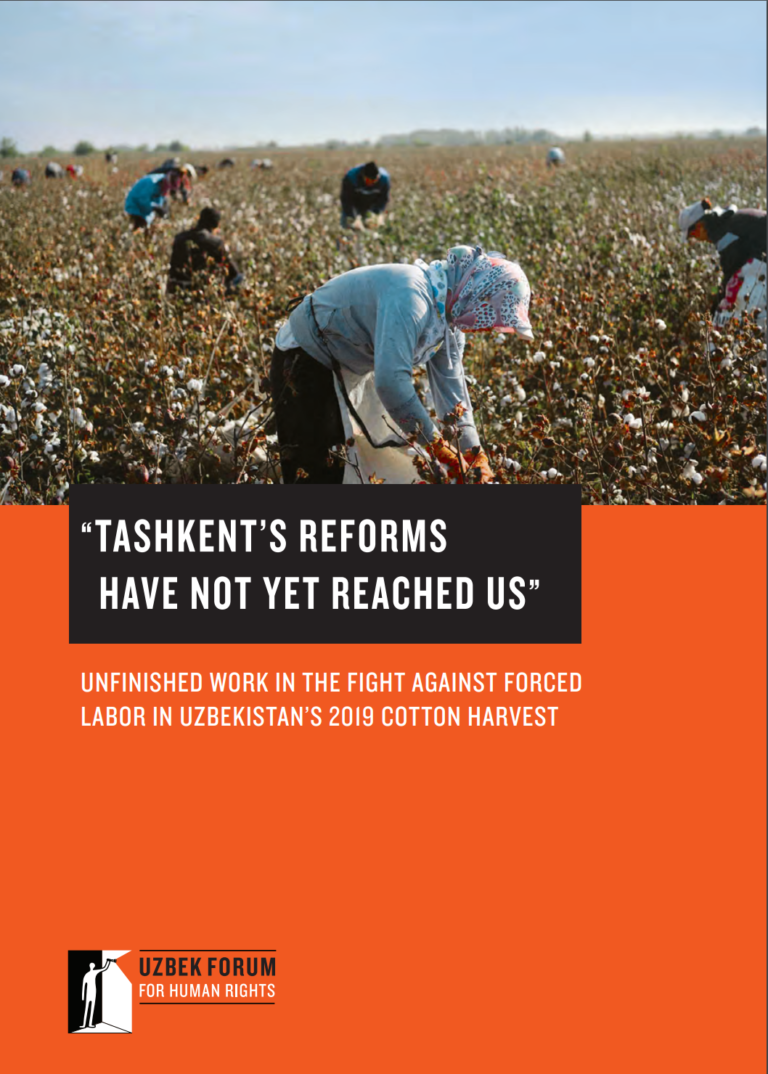Uzbek Forum has conducted independent, community-based monitoring and reporting on the cotton harvest since 2009. In previous reports, Uzbek Forum endeavored to expose forced labor, identify its root causes, and show the scale, impact on institutions, and effects on people forced to work. Here, we seek to contribute to the reform process by highlighting not just positive trends but also by using our depth of knowledge to identify problems and spark a discussion about solutions. As well as documenting the continued use of forced labor, this report seeks to identify the gaps in the reform process which continue to facilitate and incentivize it and provide the basis for a solutions-based approach to finally eliminating the practice.

